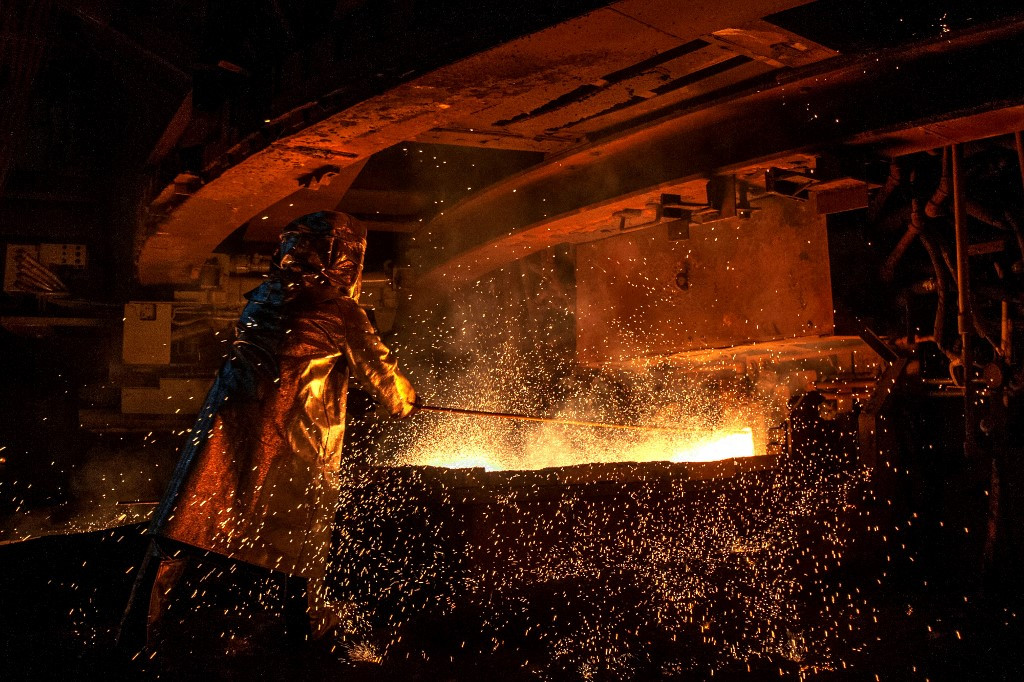RI appeals WTO nickel ruling as West forms EV alliance
Change text size
Gift Premium Articles
to Anyone

I
ndonesia on Monday filed an expected appeal against a World Trade Organization (WTO) panel ruling that was in favor of the European Union (EU) in a dispute over Jakarta's ban on nickel ore exports, the WTO said.
The WTO panel ruled in favor of the EU last month, saying that neither the prohibition of nickel exports nor a domestic processing requirement requiring all nickel ore to be refined in Indonesia were in line with global trade rules, prompting President Joko "Jokowi' Widodo to say that his country would appeal the ruling.
The EU had launched its challenge at the WTO in November 2019, arguing that Indonesian export restrictions on raw materials was unfairly harming its stainless-steel industry. Indonesia banned nickel ore exports from the start of 2020.
The Indonesian government has claimed that its raw nickel export ban, which started in January 2021, has shown positive impacts after seeing increases in mining investments and exports of nickel-derived products.
The Indonesian government has long desired to add high value to domestic mining products, especially nickel, through downstreaming.
In Montreal, the United States and other western countries announced an alliance to produce and buy critical minerals from countries with stronger environmental and labor standards, a move that could reduce business with market leader China.
Announced at the COP15 talks on biodiversity, the Sustainable Critical Minerals Alliance would support these standards for elements like lithium, cobalt and nickel, Canada's Natural Resources Minister Jonathan Wilkinson said.
“Unless China and Russia are willing to put in place [...] measures required to be able to legitimately say that they are supporting these kinds of standards then it would essentially mean [...] we will be buying alternatives as we can," Wilkinson said in an interview.
Wilkinson acknowledged that the voluntary alliance of the US, Canada, Australia, France, Germany, Japan and the United Kingdom would not shun China, which dominates the market for the minerals used in electric vehicle (EV) batteries.
"Obviously right now there are some critical minerals that are processed in large measure in China so this will be something that will need to happen over time," he said.
Western countries have been trying to wean themselves from dependence on authoritarian regimes for strategically important materials. Canada last week unveiled a strategy to ramp up production and processing of critical minerals. In June, the US and its allies set up a partnership aimed at securing supplies.
China said it had taken steps to curb pollution in its mining sector, but has faced criticism.
Mining, along with other sectors are under scrutiny at the Montreal talks due to their impact on nature.
“China is actually free to up its game with respect to environmental standards and with respect to labor standards and eventually join the alliance," Wilkinson said. "But it would have to make those kinds of changes.”
A strategist from environmental group Greenpeace welcomed the alliance's support for higher environmental, indigenous rights and labor standards but questioned how it would be enforced.
"Will there be teeth to that? For the moment it's more like a memorandum," said Keith Stewart, senior energy strategist, Greenpeace Canada.









